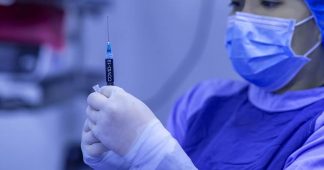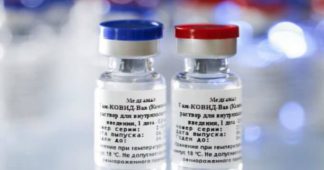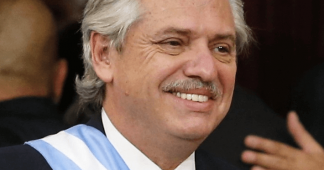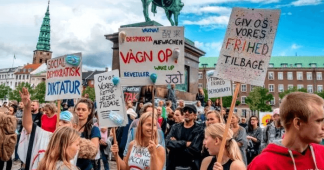By Jake Lahut and Andrew Dunn
Dec. 11, 2020
The US Food and Drug Administration reportedly moved up the announcement of Pfizer’s COVID-19 vaccine authorization after the White House chief of staff, Mark Meadows, threatened the commissioner’s job.
On Friday, Meadows delivered an ultimatum to the commissioner, Dr. Stephen Hahn, telling him to make the announcement by the end of the day or submit his resignation, The Washington Post reported.
Earlier in the day, President Donald Trump lashed out at the agency on Twitter, describing it as “a big, old, slow turtle.”
While my pushing the money drenched but heavily bureaucratic @US_FDA saved five years in the approval of NUMEROUS great new vaccines, it is still a big, old, slow turtle. Get the dam vaccines out NOW, Dr. Hahn @SteveFDA. Stop playing games and start saving lives!!!
— Donald J. Trump (@realDonaldTrump) December 11, 2020
Hahn denied the report. “This is an untrue representation of the phone call with the Chief of Staff,” he said in a statement to Business Insider. “The FDA was encouraged to continue working expeditiously on Pfizer-BioNTech’s EUA request. FDA is committed to issuing this authorization quickly, as we noted in our statement this morning.”
The White House declined to comment to The Post.
Following the conversation between Hahn and Meadows, the FDA and Pfizer’s timeline for the vaccine announcement was “apparently accelerated from Saturday morning,” The Post’s Josh Dawsey and Laurie McGinley wrote, citing an anonymous source who was not authorized to discuss the plans.
Pfizer submitted its two-dose shot for emergency approval from the FDA on November 20. The regulatory body has expedited its review process, which typically takes six to 10 months.
Dr. Peter Marks, the director of the FDA’s Center for Biologics Evaluation and Research, which is overseeing the COVID-19 vaccine application, told Business Insider in mid-November that the review would take weeks.
The deliberation process, which included a public meeting of independent experts on Thursday, was designed to bolster the public’s confidence in the result. Polling has found that many Americans — perhaps as much as 40% or 50% of the country — have reservations about getting a coronavirus vaccine.
“Everything that we are trying to do here, this is all about ensuring the public re-develops the kind of trust they once had in vaccines,” Marks said.
The FDA’s expert panel voted 17-4 on Thursday in favor of issuing an emergency authorization. That was seen as the final barrier before the agency could issue an official OK, which was expected Friday night or Saturday.
The UK, Canada, and Bahrain have already issued emergency authorization for Pfizer’s vaccine.
Published at www.businessinsider.com










